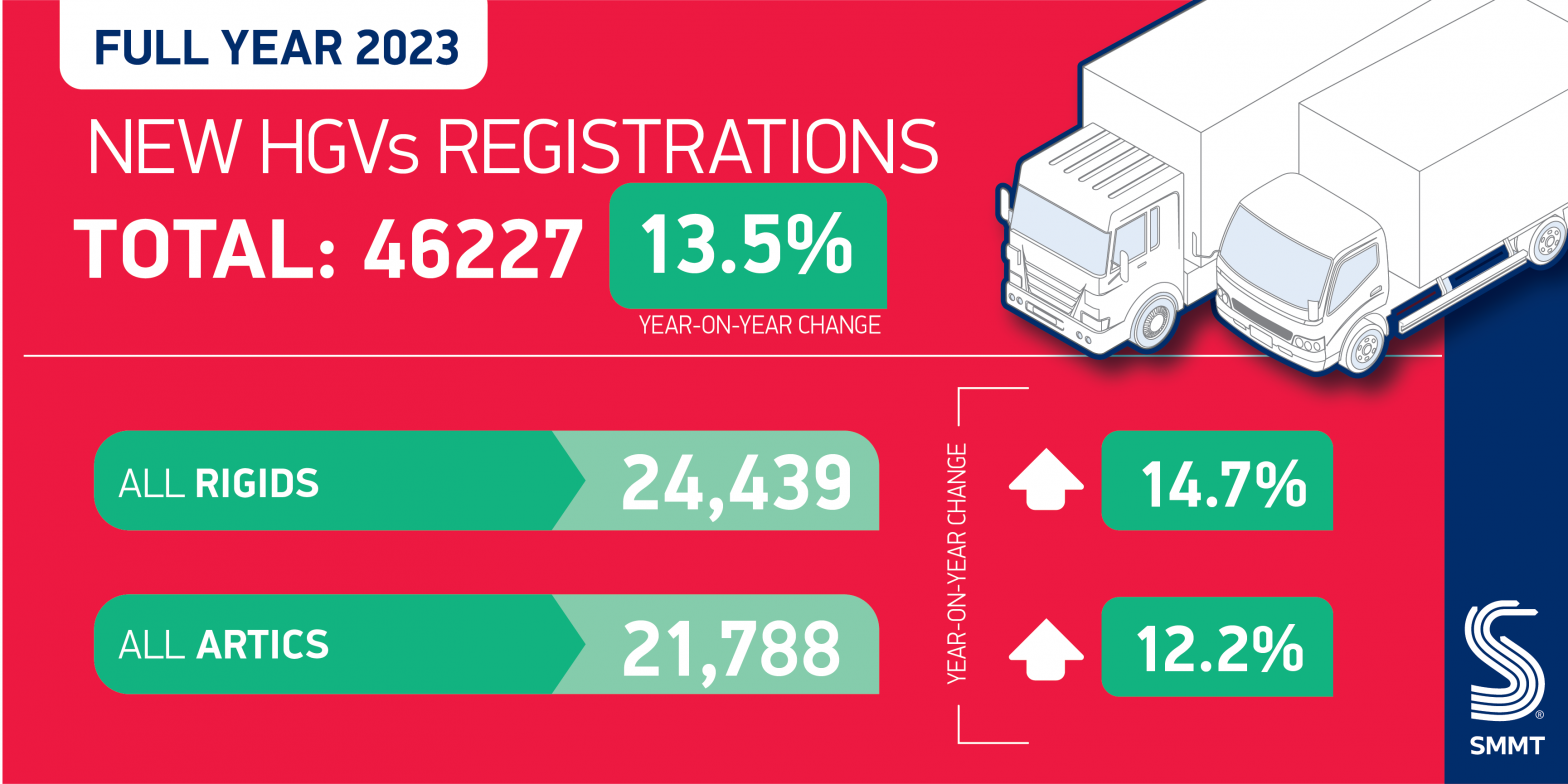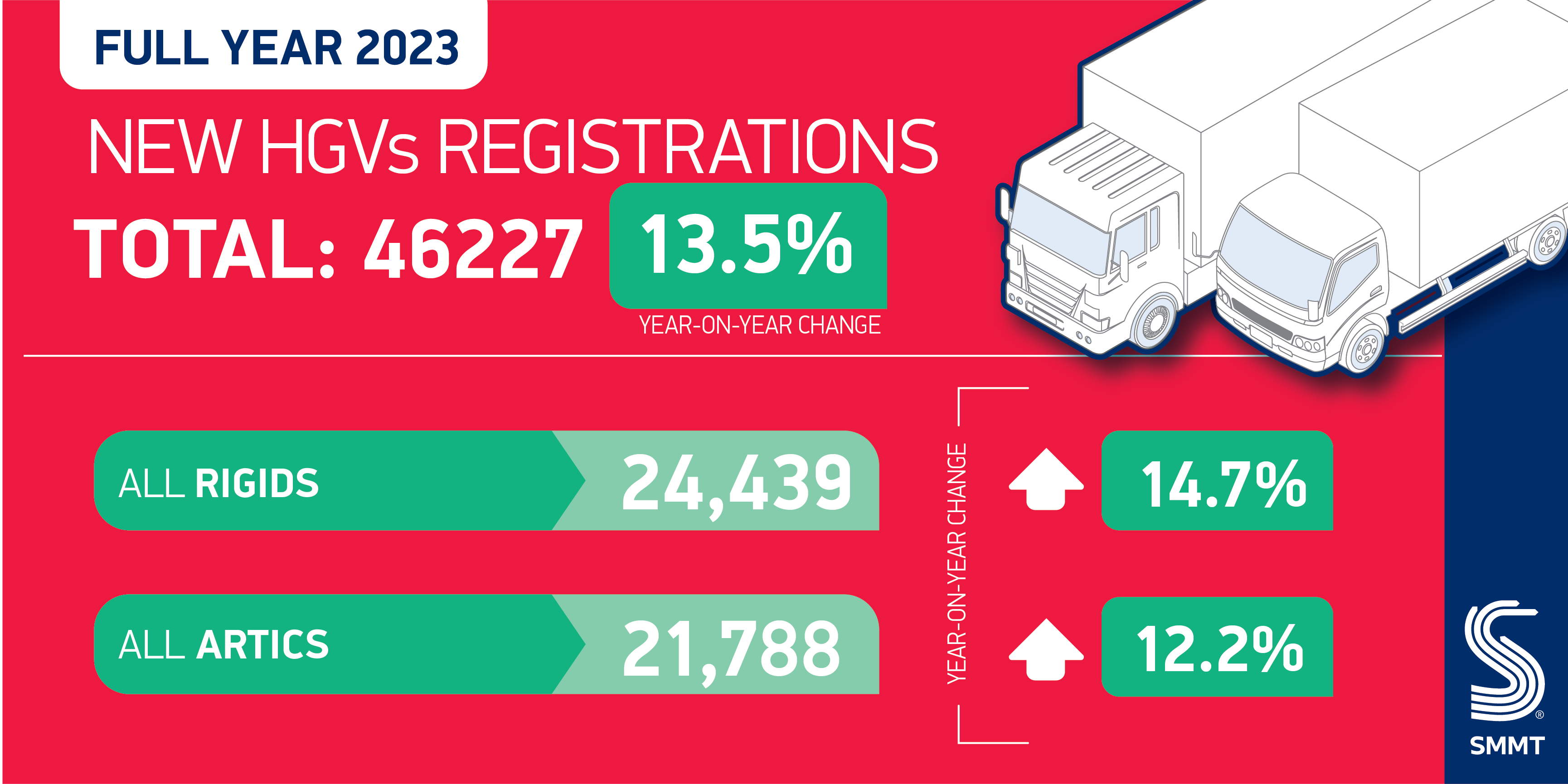

- UK’s new truck market grows for second consecutive year, up 13.5% to 46,227 units in 2023 – the best performance since 2019.
- Demand soars for rigid and articulated trucks, rising 14.7% and 12.2% respectively.
- Zero emission HGV registrations triple year on year, but at just 0.5% market share uptake must accelerate quickly to meet UK’s 2035 truck target.
- National plan for public and depot infrastructure needed urgently to boost operator confidence in electric and hydrogen trucks.


Demand for new heavy goods vehicles (HGVs) grew for the second year running with UK registrations up 13.5% in 2023, according to the latest figures published today by the Society of Motor Manufacturers and Traders (SMMT). Some 46,227 new trucks of all types, sizes and technologies were put on the road last year, representing the best annual total since 20191 as more businesses invested in their fleets.
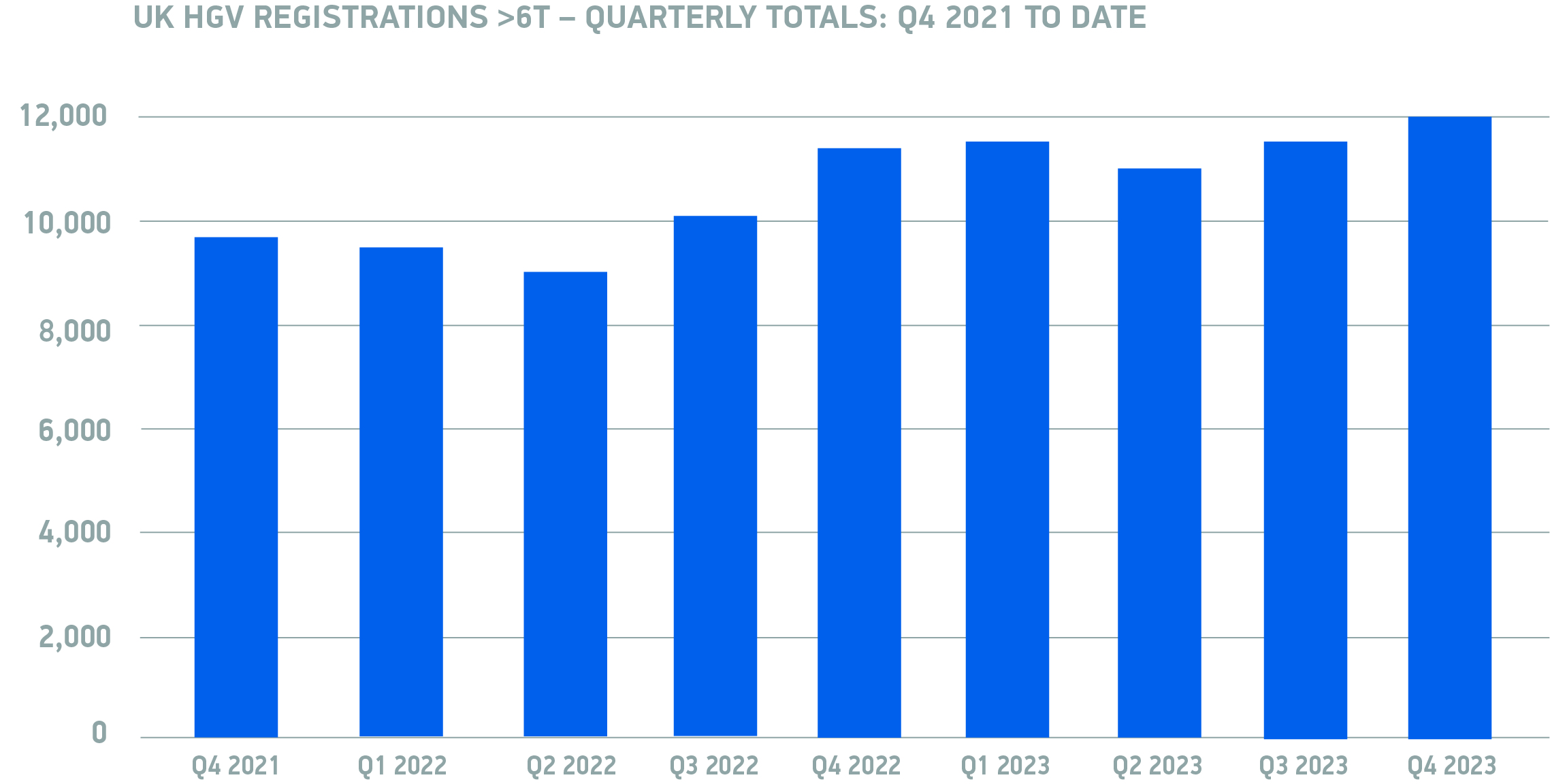

The bulk of new HGVs were rigid trucks, up 14.7% to 24,439 units – more than half (52.9%) of the market – while demand for articulated trucks was also strong, rising 12.2% to 21,788 units. More specifically, the most popular truck body type continues to be tractors, typically used for the largest delivery trucks, up 12.4% to represent some 46.4% of the market. Demand for box vans – typically used for chilled and fragile goods distribution in urban areas – rose 19.2%, while uptake of curtain-sided trucks and refuse vehicles increased by 37.4% and 14.4% respectively. Tipper registrations declined, however, down -9.2% compared with a strong 2022.
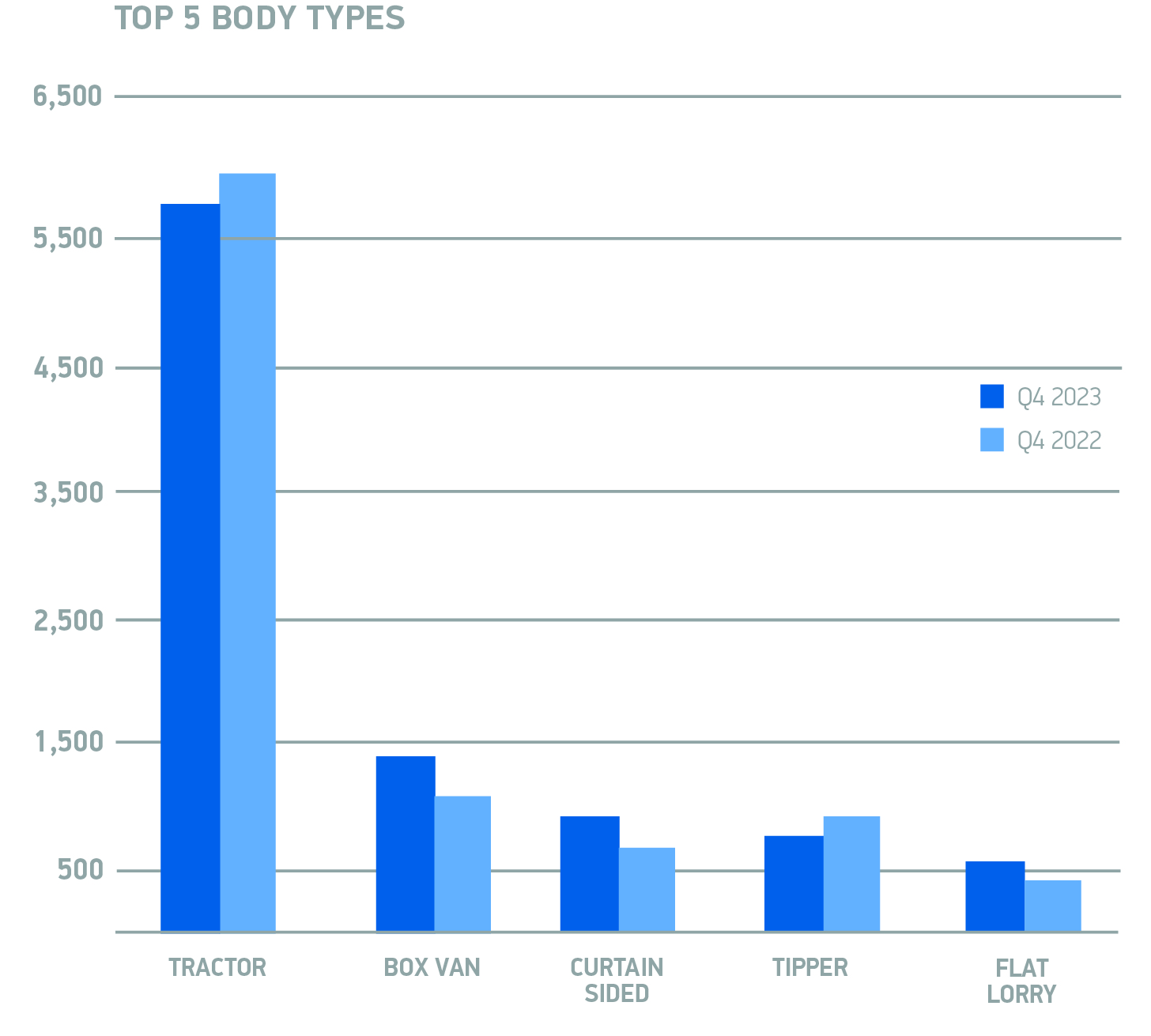

Truck operators in every UK nation made more vehicle investments, with the vast majority (87.5%) in England, rising by 13.3%. Fleet renewal in Scotland and Wales also grew, by 16.9% and 6.5% respectively, while Northern Ireland saw the biggest percentage growth, up 19.7% – albeit with small volumes that are naturally subject to volatility. Britain’s biggest region for truck demand continues to be South East England, the location of several large ports, accounting for more than one in five (20.8%) of all registrations. North West England and the West Midlands, meanwhile, made up 14.4% and 12.1% of all UK demand respectively. Robust demand nationwide means that UK uptake is now just 4.8% or 2,308 units below pre-pandemic 2019 levels.
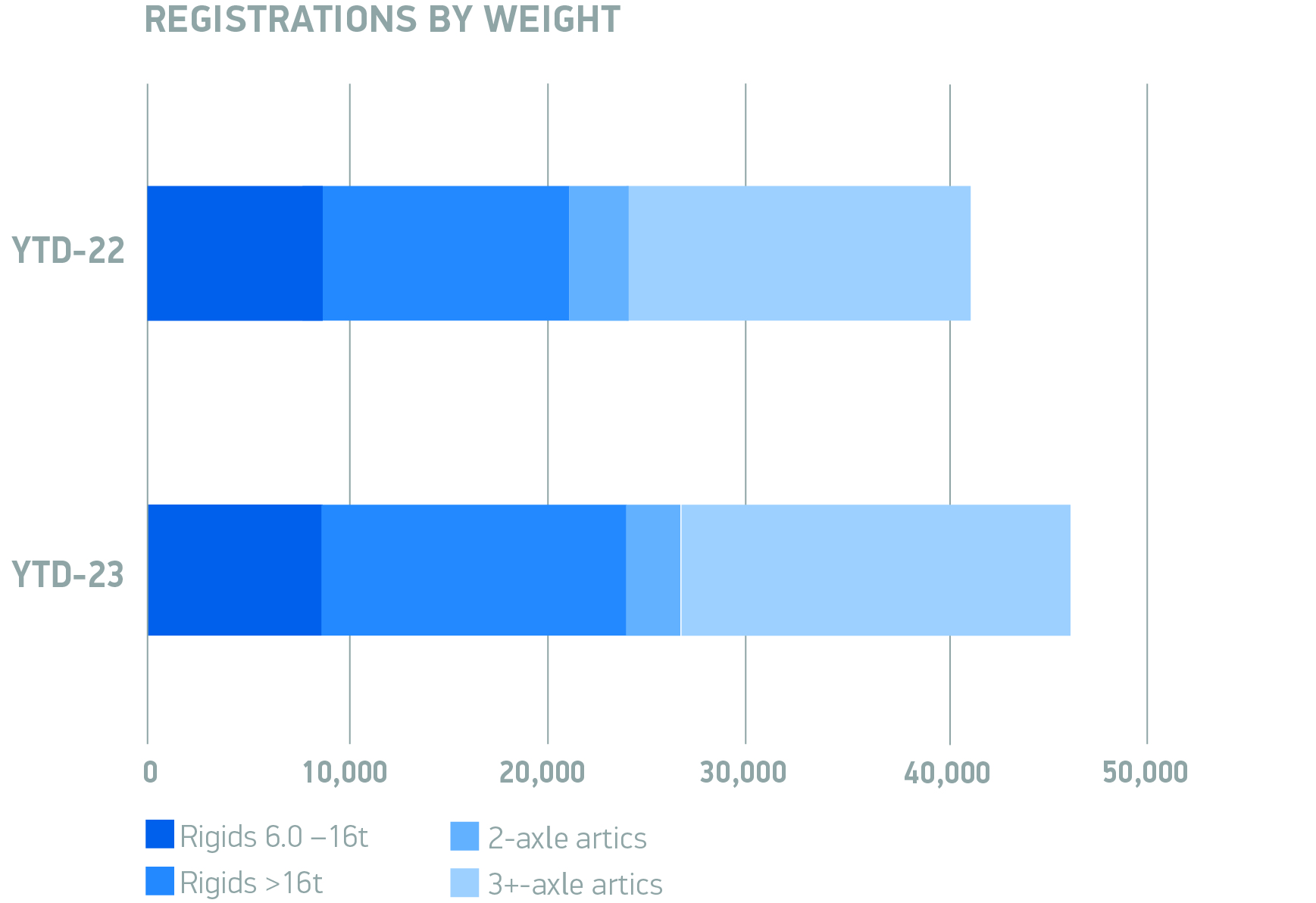

A growing choice of models also means operators are investing in new zero emission trucks, with electric and hydrogen registrations up more than threefold in 2023 – by 265.6% to 234 units.2 While this is progress, these vehicles account for just 0.5% of the market and the clock is ticking with the end of sale of new, non-zero emission trucks under 26 tonnes coming in 2035.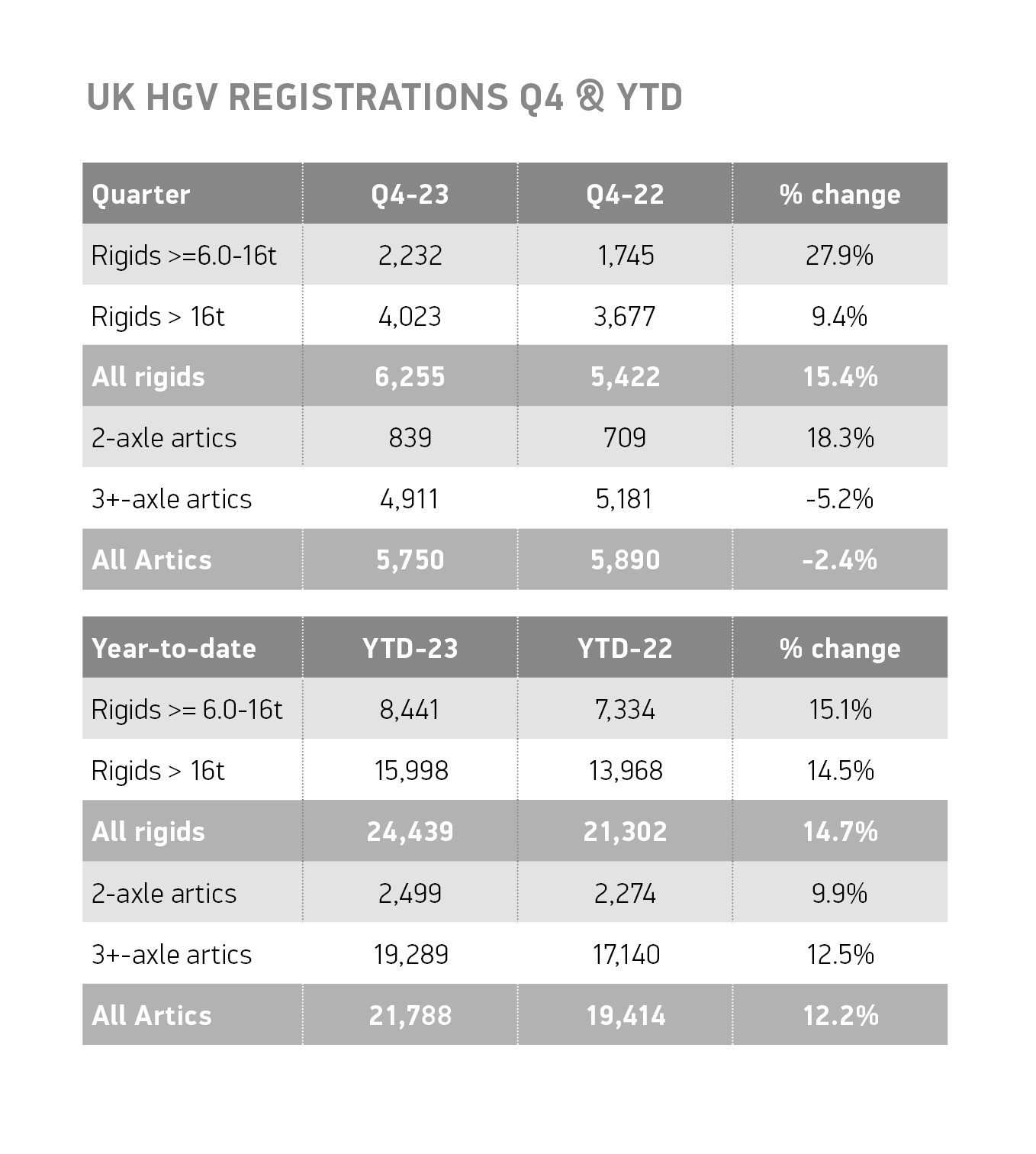

Operators need certainty that making the switch will be commercially viable against tight margins. The benefits are clear, including a reduced carbon footprint and more efficient operations, but there are acute concerns over the lack of public chargepoint infrastructure. After the UK’s first truck-dedicated public chargepoint opened in the North West last year,3 government’s Budget in less than three weeks must match ambition with action. A national chargepoint strategy needs to include support for HGVs – in depots, at rest stops and on motorways – in every part of the UK.
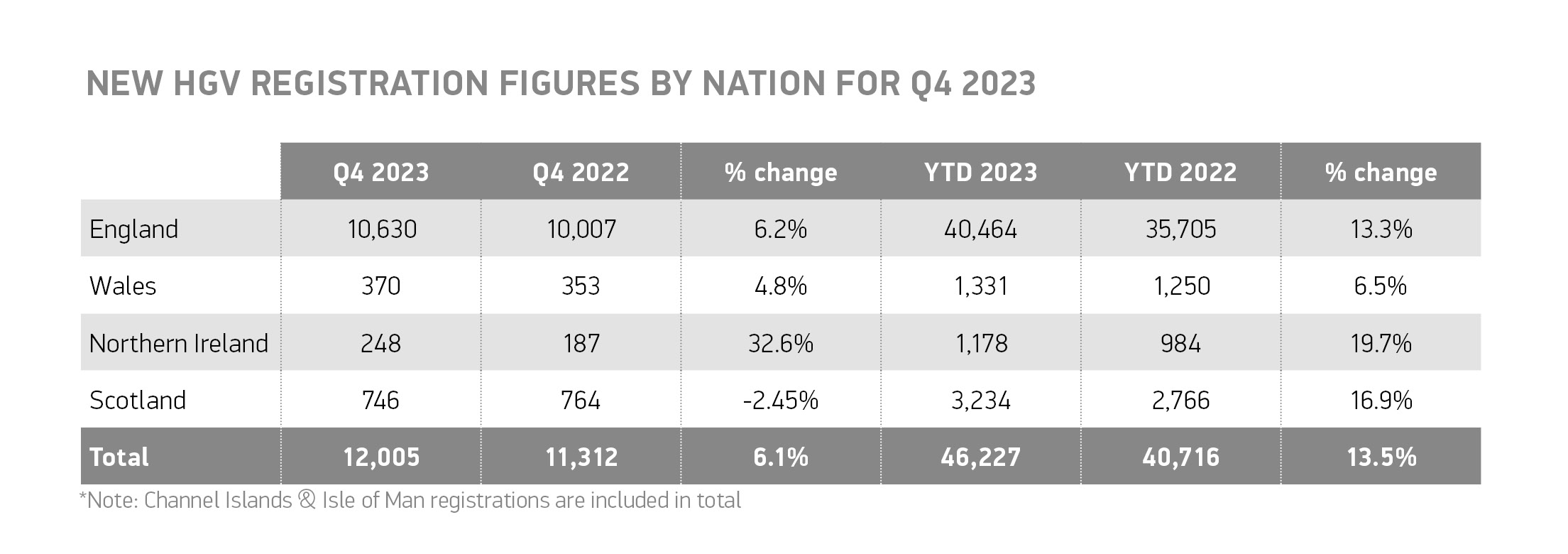

Meanwhile, with less than one full cycle of truck fleet renewal remaining before 2035, it is imperative that government sends the signal to the market that the shift to zero emission vehicles must accelerate. Businesses that fail to do so risk delaying the benefits of decarbonisation, putting a smooth, stable transition of the market in jeopardy.

Mike Hawes, SMMT Chief Executive, said, “Two years of growing demand for the very latest, fuel efficient trucks amid testing times reflects these vehicles’ importance to the British economy – and with some HGVs facing the same 2035 end of sale date as cars and vans, the sector is also critical to our green goals. Increasing availability of electric and hydrogen models – and record demand for them – is encouraging market growth but operators need cast-iron confidence to switch. More than ever, government must compel truck infrastructure rollout and provide a signal that the time to invest is now.”
Notes to editors
1 2019: 48,535 units.
2 ZEV HGV registrations 2022: 64 units
3 360kW charger and elongated HGV bays located at southbound Rivington Services on the M61.
About SMMT and the UK automotive industry
The Society of Motor Manufacturers and Traders (SMMT) is one of the largest and most influential trade associations in the UK. It supports the interests of the UK automotive industry at home and abroad, promoting the industry to government, stakeholders and the media.
The automotive industry is a vital part of the UK economy and integral to supporting the delivery of the agendas for levelling up, net zero, advancing global Britain, and the plan for growth. Automotive-related manufacturing contributes £78 billion turnover and £16 billion value added to the UK economy, and typically invests around £3 billion each year in R&D. With more than 208,000 people employed in automotive manufacturing, and some 800,000 in total across the wider sector, the industry trades globally, with exports worth £94 billion accounting for 10% of all UK goods exports.
More than 25 manufacturing brands build more than 70 models of vehicles in the UK, plus an array of specialist small volume manufacturers, supported by some 2,500 supply chain businesses and some of the world’s most skilled engineers. Many of these jobs are outside London and the Southeast, with wages that are around 14% higher than the UK average. The automotive sector also supports jobs in other key sectors – including advertising, finance and logistics.
SMMT media contacts
Paul Mauerhoff 07809 522181 pmauerhoff@smmt.co.uk
James Boley 07927 668565 jboley@smmt.co.uk
Rebecca Gibbs 07708 480889 rgibbs@smmt.co.uk
Scott Clarke 07912 799959 sclarke@smmt.co.uk
Emma Butcher 07880 191825 ebutcher@smmt.co.uk
